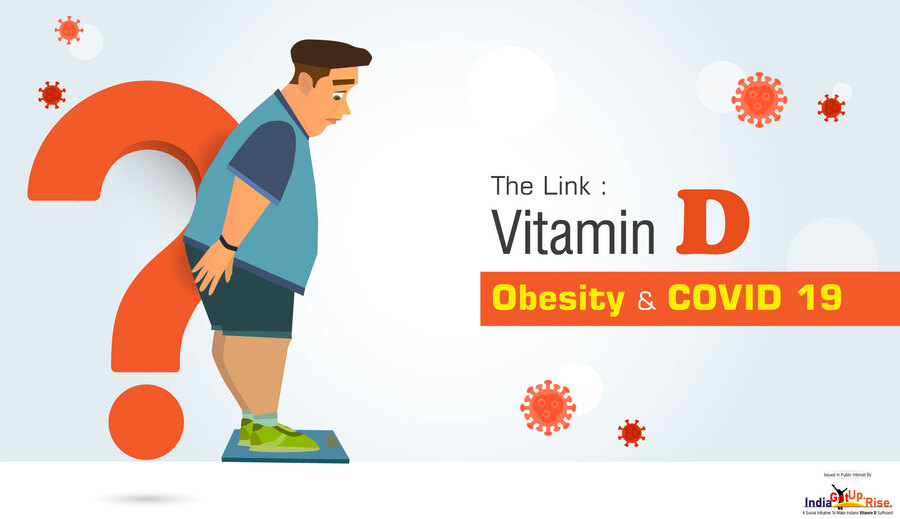- World Health Organization as a body mass index (BMI) of 30 kg/m2 or more. There has been consistent association of Vitamin D deficiency in obese individuals in the past literature available (Lagunova Z., 2009).The links between diminished immune function and individuals with obesity raise important questions about possibility for greater.
- Vitamin D deficiency is common in people with obesity, with reported prevalence rates as high as 90%. The higher risk of deficiency is thought to be related to several factors. One contributor could be less sun exposure. In addition, since vitamin D is fat-soluble, people with higher amounts of body fat will ‘sequester’ vitamin D in fat cells, leading to lower amounts circulating in the blood. Due to this, people with obesity typically need higher amounts of vitamin D to maintain adequate levels and/or to correct a deficiency. Thus put simply, obesity-associated vitamin D insufficiency is likely due to the decreased bioavailability of vitamin D3 from cutaneous and dietary sources because of its deposition in body fat compartments. (Wortsman J., 2000)
- In an Asian study done across 24 countries, COVID 19 infection and mortality were more significant in people with obesity and diabetes (Jayawardena R, 2021). Since COVID 19 is caused due to a dysregulation in immune system, hence restoring the immune balance would be crucial in such settings. Researchers recommend Vitamin D supplementation for decreasing severity and mortality .
- Adults with severe obesity, or a BMI of 40 or more, are at higher risk for complications from COVID-19. Severe obesity increases the risk of serious breathing issues, including acute respiratory distress syndrome (ARDS), which is a major complication of COVID-19), ARDS can cause difficulties with the care team’s ability to gain respiratory support for seriously ill patients. Further, underlying health conditions caused by obesity further increases risks.
- Until further research establishes the connection between supplementation and decreased severity and mortality risk between obese individuals and COVID 19, modifiable lifestyle factors such as diet and physical activity should not be marginalized (Carter, 2020).
Please always ensure to check with your Doctor / Healthcare / GP before starting with any new medication or therapy.
For any queries, feel free to reach us on our website, facebook, twitter, instagram, LinkedIn
Take the free Vitamin D Test – Click here: Vitamin D Self Examination
References
- Carter, S. B. (2020). onsiderations for Obesity, Vitamin D, and Physical Activity Amid the COVID‐19 Pandemic. Obesity, 28: 1176-1177.
- Jayawardena R, J. D. (2021). Impact of the vitamin D deficiency on COVID-19 infection and mortality in Asian countries . Diabetes Metab Syndr. , 15(3):757-764.
- Lagunova Z., P. A. ( 2009). The dependency of vitamin D status on body mass index, gender, age and season. Anticancer Research , 29:3713–3720.
- Wortsman J., M. L. (2000). Decreased bioavailability of vitamin D in obesity. The American Journal of Clinical Nutrition, 72(3), 690–693.


